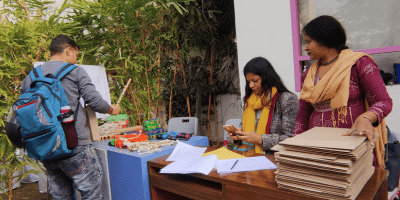
OCT 11
Discovery Sessions
Uncover new skills, create connections or express your creativity through an array of in-depth workshops. This is your opportunity to dive deeper into an area of interest or explore a new challenge. *Start times may vary.
Options include: Women of Atlanta bike tour • Walk through Civil Rights history • World of welding • Equity and the chocolate factory • The robo-shop • Black girl magic: A mural tour • Tai chi meditation • A time for wine • Graffiti, shall we? • Fashion behind the scenes • Two steps together • TED Explores: A New Climate Vision • Clear-eyed leadership • Turn your passion into policy • Reimagining philanthropy • Designing an inclusive future beyond Earth • VOICES • Climate Wayfinding • Finding resilience as a working parent
OCT 12
Discovery Sessions
Choose your own adventure from an array of in-depth workshops, bucket list activities and innovative offerings. Try something new or dive into a topic you already love. *Start times may vary.
Options include: Sustainability in action bike tour • A walk in the woods • The Center for Civil and Human Rights • Hip hop spin class • Pickleball party! • The flower hour • Biomimicry in the botanical garden • Fashion behind the scenes • A more perfect justice system • Generation unknown • TED Explores: A New Climate Vision • The inner journey to more conscious investing • Upholding Indigenous entrepreneurs • VOICES • When women lead, action follows • The science of resilience • Exploring digital intimacy




















































